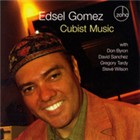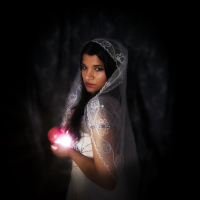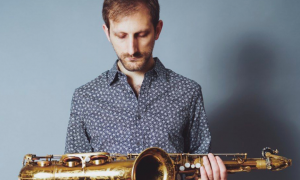Home » Jazz Articles » Interview » Jacob Fred Jazz Odyssey: Three-Way Street
Jacob Fred Jazz Odyssey: Three-Way Street
RM: Those are the guys. For large ensemble especially. As for "Halliburton Breakdown —I definitely wrote that after being newly slayed afresh by some of the Bird and Dizzy recordings. The really early ones, where their unison stuff is like a bolt of lightning; it's ridiculous. So the head definitely came from that, and the goal for the improvising came from Miles' biography. There are eighty pages where all he talks about is Bird, and at one point he says, "the best I ever heard that guy is before he was recorded, in '43, '44. He said he would have people jumping up and down on tables screaming "hallelujah, but he never played longer than sixteen bars! He was in the Earl Hines band. His solos were sixteen bars maximum, and the house would be completely demolished at the end of those sixteen bars. So my idea was, okay, let's try to do that, keep all the solos short, keep the table going around and try to make a very succinct statement. Now, live, it has opened up and we do play a little longer. But on the record it was sort of trading sixteens, trading thirty-twos, something like that.
AAJ: There's not really a long tune on this record. There's no "Walking With Giants. "Santiago is really short—two-and-a-half minutes.
RM: "Santiago actually got abridged for the record, which I'm a little bummed about. When we were rehearsing that tune, we played Joel all of our contenders the day before going into the studio, and discussed them. On that one, he really liked the A section but didn't like the bridge as much. That bridge is half the song, because in the initial statement, you state the A theme, state the B theme, restate the A theme and then you begin improvising. You improvise on the A theme until it develops—then, tempo change, improvise on the B theme for almost as long, if not longer. Then recapitulate to the A theme. So if you take that A theme out, there's not much left! I like the stuff on the record but that tune has a lot more of a cinematic, epic quality in its original state. And that's how we play it live.
AAJ: You stuck that section back in?
RM: Yeah. And when we were recording it, I was the composer; I could have put my foot down. But I was thinking, "why the heck did we get a producer anyway, if we're not going to trust his objective judgment? So I took a chance and went for what he suggested.
JS: Including the song order. He came up with an order that would have been completely out of our tendencies. We probably would have started with something like "Halliburton or something like that. He came up with a pretty interesting lineup that eases you into it, which is kind of from a more mature, made-about-a-million-records point of view.
 BH: Joel did that? I thought [executive producer Kevin] Calabro did the whole order.
BH: Joel did that? I thought [executive producer Kevin] Calabro did the whole order.RM: They did it together. They sat down in the office and figured it out.
AAJ: I really love the tune "Wonderful on this record—your version of the Brian Wilson song. That's yet another of my all-time favorite songs that you managed to choose to cover.
RM: You actually knew that?
AAJ: Yeah, I'm a pretty big Beach Boys fan. I know a lot of your arrangements on this record have an improvisational element. But what's interesting about "Wonderful is that if it has anything to do with improvisation, it's the world's most subtle form of improv where it's just a question of phrasing—of stating the written melody just a little differently. This is what's happening on "Wonderful, I think; it's slightly rephrased, like a great singer would do on a song.
RM: The idea on that one was to have the improvising be dynamic—where we'd improvise crescendos and decrescendos as a group rather than improvise over the chords or whatever. Just keep that beautiful melody going. If you tried to blow over those chords it would sound kind of jazzy-jazz anyway. So the idea was to have the improvisation be textural; mostly Jason. Then Brian and I would just follow him.
AAJ: So you're going to work this record for a while, keep touring on it—you don't even have to think about recording a new one for some time. But do you think the next one will be like this one? Is this where you're going? Or do you see doing a much more improvisational thing?
RM: It's going to be a little while, but if we could, I'd release an all-electric, all-improvised record immediately. We've got more than sixty minutes worth of stuff that we're really proud of with the Rhodes that's all improv. We've really been exploring that a lot lately, and I think that would be just as heavy as The Sameness of Difference in the exact opposite way.
AAJ: Live in the studio? Or from a show?
RM: I'd want to release stuff where every song's from a different night—and make a suite out of it. But like you said, we're going to work this record for at least six months.
BH: All of '06.
RM: Just from being in this band for twelve years, I can guarantee that whatever my concept right now is about our next record—it's a mirage. My concept of The Sameness of Difference the morning we went into the studio was a mirage. It is what is is and it'll be what it'll be when the time comes around. But I think our next record will have a lot more electric sonics and a lot more spontaneous composition.
BH: Something else we talked about for the next record—we've been really lucky who our friends are. All three of us are friends with some unbelievable players, and we've definitely thought about doing a Jacob Fred Big Band record. Jason, Reed and I all compose a lot, and in very different ways. So we've talked about writing a suite for a big band all together, since we all have different strengths as composers. So that's something we've talked about. Financially, Jacob Fred Big Band probably couldn't gig, but we could do a record.
AAJ: Recently a friend asked me sincerely, out of the blue, "why would somebody play jazz? It's not like it's that popular. I came up with the usual, "well, this is where musicians can improvise kind of explanation. But what do you say? What's your answer?
JS: It has to start from a compulsive need to express something that you don't hear out there. We've talked a million times about being from the Midwest—there's some good stuff that rolls through both of our towns, but I always wanted Miles and Tony Williams to roll through my town! And that wasn't coming anywhere near me. So I tried to find guys that I could learn how to do that with. It just hits you like a lightning bolt, and it's not a rational thing. We all like popular music styles as well, but this is just something you're compelled to do.
RM: I once heard a very sweet and innocent—and ignorant, though I don't mean that in a bad way—girl, who we were staying with, ask our first drummer, Sean Layton, why anybody would want to play jazz. And he was very patient and fatherly when he answered her. He was like, "well, there are things that can't be told in words. A lot of our human experience can't be described. It can only be demonstrated, and instrumental improvised music is an involuntary map of your inner world. There's really no other way to show that stuff. You can't say it, you can't compose it. By its very nature, it has to be spontaneous to go to that place in the self. I think that's what makes it eternally relevant. But it has to have a new form. It has to take a new form everyday, just like the earth takes a new form.
BH: My answer would be one word, and that word would be "love.
Visit Jacob Fred Jazz Odyssey on the web.
Jacob Fred Jazz Odyssey Selected Discography
The Sameness of Difference (Hyena, 2005)
Walking With Giants (Hyena, 2004)
Symbiosis Osmosis (Kufala, 2003)
Slow Breath, Silent Mind (Kufala, 2003)
Telluride is Acoustic (Self-publised, 2002)
Jacob Fred Jazz Odyssey, All Is One (Live in New York) (Knitting Factory, 2002)
Self is Gone (Self-published, 2001)
Live at Your Mama's House (Self-published, 2000)
Welcome Home (Accurate, 1998)
Live in Tokyo (Self-published, 1996)
Live at the Lincoln Continental (Self-published, 1995)
Related Articles
Farther Afield: Live at Higher Ground (2005)
Live and Electric in Saratoga (2005)
Photo Credit
Kevin Haas
 | Free Download Happiness Is A Warm Gun |
Tags
About Jacob Fred Jazz Odyssey
Instrument: Band / ensemble / orchestra
PREVIOUS / NEXT
Support All About Jazz
 All About Jazz has been a pillar of jazz since 1995, championing it as an art form and, more importantly, supporting the musicians who make it. Our enduring commitment has made "AAJ" one of the most culturally important websites of its kind, read by hundreds of thousands of fans, musicians and industry figures every month.
All About Jazz has been a pillar of jazz since 1995, championing it as an art form and, more importantly, supporting the musicians who make it. Our enduring commitment has made "AAJ" one of the most culturally important websites of its kind, read by hundreds of thousands of fans, musicians and industry figures every month.




















